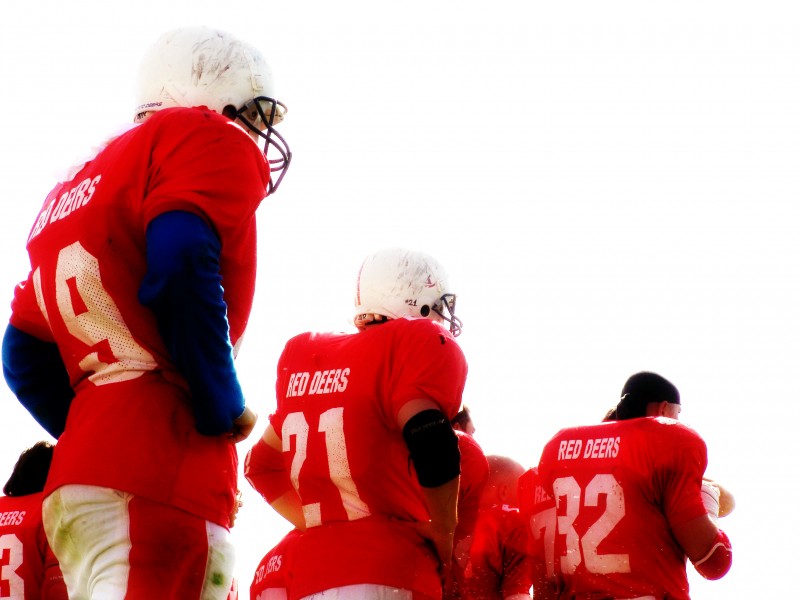
We've all heard it before, but communication really is the key to accomplishing what you and your staff need to accomplish. Everyone has his or her weaknesses. I know for a fact that mine is thinking that my staff and athletes know exactly what I want done and how I want them to do it. It isn't even an assumption. I think they should know and then I flip out when they don’t know. It's something that I've had to work on since day one, and it's a constant battle for me to do so. So I don’t think there is anything more important than this. You could have all the knowledge in the world, but if you can’t communicate it to others, all that knowledge is useless.
My approach to my staff and athletes has always been based on the KISS principle. I don’t want my staff worrying about a bunch of different rules and regulations that have nothing to do with making their athletes better or making our staff a stronger unit. This doesn't mean that I let them run completely wild (in some cases), but I give them a lot of freedom to do whatever it takes to get the job done. As I've stated before, I like to have a bunch of different personalities around our athletes. The more the merrier because the more we have, the more they can relate to certain individuals on the team who I may not be able to reach. Because we have a bunch of different personalities involved, they all have different methods of executing our mission.
RECENT: How Do We Get to the Steak, Not the Sizzle?
When I started, I had poor communication with my staff and it was a madhouse. Nothing was getting done correctly, from training our athletes to cleaning the weight room. There wasn't any structure and there wasn't anything to build off of. Everyone was doing things the way they had been done before. I kept getting angrier and angrier. I was disappointed in them and myself and I didn't really know why. Finally, two of my most trusted staff members pointed out that they didn't know what I wanted from them and that everyone was willing and able to do it any way I wanted but communication had to improve. After kicking myself in the ass for being so stupid, I took a step back and figured out what the most important things that I wanted done were and how we were going to go about doing them. That was, and still is, the best meeting that I've ever had in my career.
I laid out the plan, and the entire staff gave input as to how we were going to implement it. It was productive and to the point, and the whole operation changed. I'm not saying that I'm perfect now. I still revert to my old ways to some extent, but my staff knows to ask if they have any questions on how to get things done.
Communication changed everything with our staff. Never take for granted how vital it is to lay out how you want things done, even if you have to say it repeatedly. Communication can help you see who has bought into your way of doing things. If you don’t tell your staff that you don’t like something they do or the way that they act, that is your fault. If you tell, show and explain to them how you want things done and they still do it their way, that is their fault. They're basically saying, "F*** you and your program," and it's time for them to go. A different personality is one thing, but disrespect to you and your program is something else altogether. Loyalty is a two-way street, and you don't have any chance of success if you and your staff aren't on the same page or even in the same book!
Communication is vital in your relationships with your athletes. If you don't show them how you want things done, you don't have any right to blow up on them over it. Communication is leading and teaching. A good friend of mine was in the Marine Corps and I was talking to him about his experience. I asked him how the drill instructors got kids the same age as those we coach to do all the crazy things they get them to do. They trained these kids to get shot at! Coaches have trouble getting a kid to run his route 10 yards instead of nine, and these kids, who are the same age, are kicking in doors and capturing bad people while getting shot at and while bombs are going off everywhere. He told me that the thing he remembered the most in boot camp was his drill instructor always saying before they did something new, “I will lead. You will follow. I will teach you. You will learn.”
LISTEN: Showing Loyalty and Earning Trust with Evan Marcus
They don't just hand these guys guns and say, "Go get ’em!" They break down everything they do into teaching moments. They define how they want a particular task done and then they demand that they do it. It sounds a lot like coaching to me! This hits home because I think many conflicts with players can be avoided if you just tell them beforehand what you want done, how you want it done and how to do it. This is especially important when you take over a new team or go to a new school. Everyone there is accustomed to doing it one way—good, bad or indifferent. It is your job to coach them up. If you don’t, it's just like with your staff—it's your fault. If you coach them up and communicate how you want things done and they still spit the bit, it's on them and they should be treated accordingly.
It isn't just coaching Xs and Os either. If a player has something going on in his life, he's performing badly or he's just having a bad day, you can't help him if he doesn't communicate with you. I remember a player we had once who was just having a terrible day. He couldn't focus and he wasn't getting anything done. Before I flipped out on him, I took him aside and asked him what was going on. I told him that this wasn't his normal performance. He said that his father had just passed away that morning and he hadn't told anyone yet. Imagine how bad he would have felt if I had yelled at him and what a complete jerk I would have felt like for the same reason.
Remember, there is always a cause for a person’s behavior, and you will never find out what it is without communication. It's a wonderful thing when everyone is on the same page.











